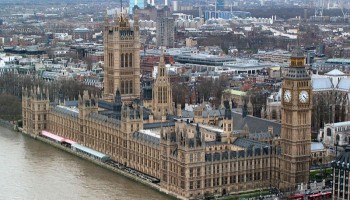Jeremy Hunt To Press Google On Copyright

The culture secretary wants a new front in the war on online copyright infringement with the help of Google
The government is set to press Google to start pulling its weight in the fight against online piracy this week.
The call for more to be done will come in a speech from secretary of state for culture, media and sport Jeremy Hunt in Cambridge tomorrow, reports the Financial Times.
Hunt is expected to tell the Royal Television Society that search engines, advertisers and credit card companies should go further to “make life more difficult” for online pirates.
According to reports, if a court deems a site to be unlawful the government wants search engines to push it down the rankings to stifle traffic and at the same time cut off advertising or payment revenues to make the site economically unviable.
In the absence of an industry-led solution the government is apparently prepared to use the upcoming Communications Bill to legislate on the issue. The government has previously demanded that ISPs cut off pirate sites and users who infringe copyright, but this has been challenged in court by BT and TalkTalk – and ISPs have proposed an independent watchdog with the power to blacklist sites.
Equal rights
Hunt (pictured) will reportedly say that online businesses deserve the same legal protection and rights as offline, physical ones.
 “We do not allow certain products to be sold in the shops on the high street, nor do we allow shops to be set up purely to sell counterfeited products. Neither should we tolerate it online,” the Financial Times expects him to say.
“We do not allow certain products to be sold in the shops on the high street, nor do we allow shops to be set up purely to sell counterfeited products. Neither should we tolerate it online,” the Financial Times expects him to say.
“The government has no business protecting old models or helping industries that have failed to move with the times. But those new models will never be able to prosper if they have to compete with free alternatives based on the illegal distribution of copyrighted material.”
The government has promised to table the new Communications Bill this parliament.
Pressuring search engines rather than ISPs over copyrighted content is a new approach for the government and opens up another front in the war against illegal content.
In July, Hollywood finally won a protracted legal bid to compel BT to block access to file-sharing site Newzbin which linked to copyright content around the Internet.
The ruling prompted fears from digital rights activists over the precedent set for other Internet service providers, potentially paving the way for further website blocking.
The Daily Telegraph reports that Google claims it already deals with requests from copyright holders within four hours.
In the US, the Departmebnt of Justice has fined Google £300 million for displaying adverts from Canadian online pharmacies, for products which it is illegal to sell in the US. Investors have sued the search giant over the incident.